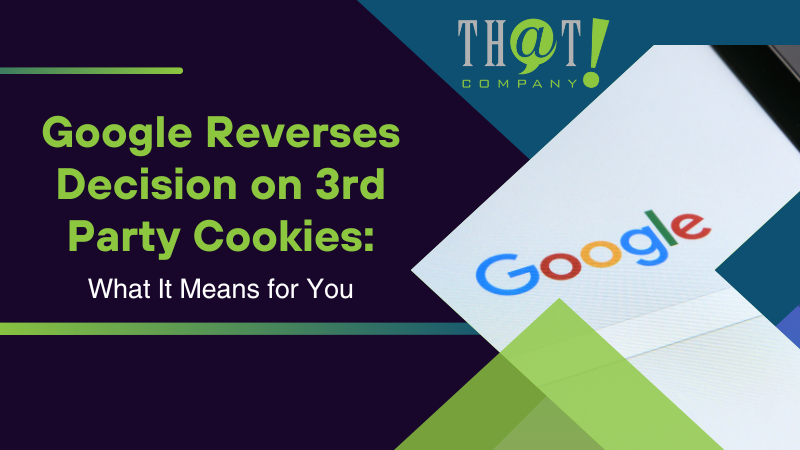
In a surprising turn, Google has reversed its decision on 3rd party cookies to phase them out. Originally planned for 2024, the phase-out was meant to enhance privacy. However, Google’s new approach, driven by feedback and privacy worries, now lets users opt-in for these cookies. This article will explain why Google reverses its decision on 3rd party cookies and what it means for online privacy and advertising.
Key Takeaways
- Google has reversed its plan to phase out third-party cookies by 2024, introducing an opt-in system to enhance user privacy while maintaining support for advertisers.
- The decision is influenced by feedback from stakeholders, highlighting the need for transparency and user control in data management alongside evolving privacy regulations.
- Alternatives to third-party cookies, such as first-party data and contextual advertising, are becoming essential strategies for advertisers adapting to a more privacy-focused digital ecosystem.

Google’s Reversal on Third-Party Cookies
Google’s decision to reverse its plan to phase out third-party cookies has sent shockwaves through the digital advertising community. Initially, Google announced the third-party cookie deprecation in Chrome by 2024, aiming to enhance user privacy and shift towards a more secure web environment. However, after extensive feedback from stakeholders and growing privacy concerns, Google has decided to maintain third-party cookies but introduce a new opt-in system for users.
This reversal has significant implications for both user privacy and the advertising industry. Google’s new policy lets users choose whether to use third-party cookies, aiming to balance privacy concerns with the needs of advertisers and publishers. The new strategy involves a collaborative effort with the Privacy Sandbox initiative, which seeks to develop privacy-preserving alternatives to third-party cookies.
This article will explore Google’s original plan, the reasons for the reversal, and the new approach being implemented. Grasping these factors provides insight into the broader impact of this decision on the digital landscape.
The Original Plan
Google initially announced its plan to phase out third-party cookies in Chrome by January 2024, a move that was first revealed in 2020. The timeline for this significant change was initially set for completion by 2022, but it was later revised to 2024 due to the complexity of the transition and the need for more robust alternatives.
The process has now been extended to 2025, providing the industry additional time to adapt.
Reasons for Reversal
Feedback from advertisers, publishers, and regulators heavily influenced the decision to reverse the phase-out of third-party cookies. Concerns regarding user privacy and potential ad fraud led Google to reconsider its approach. The need for transparency and a privacy-friendly browsing experience also played significant roles in this decision.
Moreover, the delays in the initial timeline allowed for more time to address these concerns and seek broader industry acceptance. Regulators like the UK’s Competition and Markets Authority requested more time for advertisers to test new technologies and change tactics, leading to the current decision.
These delays underscore the challenge of balancing privacy concerns with the practical needs of the advertising ecosystem.
New Approach
Google’s new strategy allows consumers to opt into third-party cookies instead of eliminating them. This opt-in system is part of the Privacy Sandbox initiative, which seeks to create a privacy-conscious web environment while still enabling effective advertising. Users can make informed choices about data sharing and adjust their preferences anytime.
Introducing new APIs designed to replace third-party cookies is a key component of this strategy. These include the Attribution Reporting API and the Topics API, which focus on user interests without the need to track users or cross-site tracking.
The new experience aims to balance privacy and functionality, offering users a more secure web browsing experience while still supporting the advertising industry.
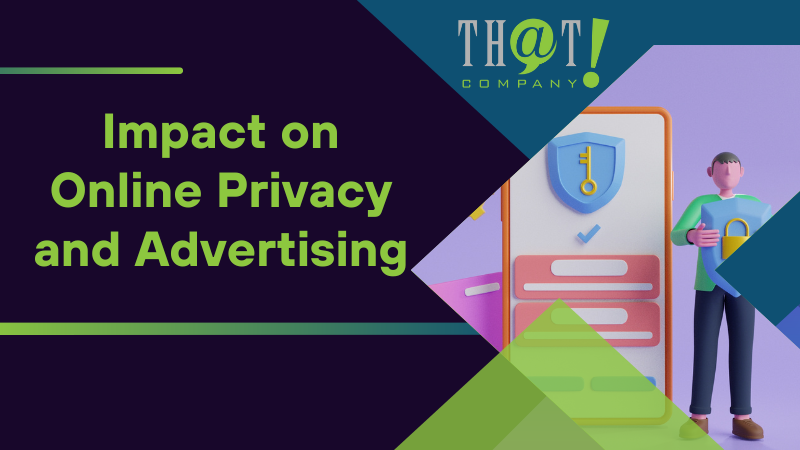
Impact on Online Privacy and Advertising
The impact of Google’s decision to maintain third-party cookies while introducing an opt-in system is profound, affecting various stakeholders in the digital ecosystem. Third-party cookies have long been used to track user visits across different websites, enabling targeted advertising and enhancing marketing strategies. With Google’s reversal, users will now have greater control over their privacy, which could lead to significant changes in how online advertising is conducted.
For advertisers and marketers, this decision means adapting to new methods of targeting and personalization. Many in the industry feel unprepared for the shift away from third-party cookies, with a considerable number still relying on them for their advertising strategies. Privacy regulations such as GDPR, CCPA, and ePR also play a crucial role in shaping cookie compliance and the overall advertising ecosystem.
This section will examine user privacy concerns, the advertising industry’s response, and the implications for consumers. These insights will offer a comprehensive view of how this reversal affects the digital landscape.
User Privacy Concerns
User privacy has been a major concern with third-party cookies, which track behavior across different websites for targeted advertising. Many users have expressed concerns about the potential misuse of their data, leading to a demand for more privacy-preserving alternatives. Google’s Privacy Sandbox initiative aims to address these concerns by introducing alternatives like the Attribution Reporting API and the Topics API, which focus on user interests without the need for cross-site tracking.
Under regulations such as the California Privacy Rights Act (CPRA), users must be given the option to opt out of cookies that facilitate the sale of their personal information. This reinforces the need for consent management integrated into marketing strategies. Google aims to enhance user privacy by enabling informed choices about data sharing while still supporting the advertising industry.
Advertising Industry Response
The advertising industry’s response to Google’s decision has been mixed. While some marketers are exploring alternatives to third-party cookies, many still rely heavily on them for targeted advertising. The cost of reaching consumers through third-party cookies is likely to rise, reducing the impact of this advertising method on marketers’ bottom lines.
Marketers are encouraged to invest in cookieless personalization, leveraging zero and first-party data, and utilizing methods like contextual advertising. Contextual advertising, which targets ads based on the content of the current webpage, is expected to prevail after the elimination of third-party cookies.
Marketers can continue to engage their audiences effectively by focusing on personalized experiences with third-party cookie alternatives while adhering to privacy regulations.
Consumer Implications
For consumers, the reversal of Google’s decision brings a renewed focus on privacy and transparency in data management. As users demand more control, cookie consent banners will continue to inform them about data management. This transparency is crucial for building trust and providing a safer online experience.
First-party data plays a significant role in this new landscape, helping brands create personalized and targeted marketing campaigns without relying on third-party cookies. Leveraging first-party data through emails, newsletters, and loyalty programs allows companies to engage more deeply with consumers while respecting their privacy.
Shifting towards first-party data and innovative personalization methods creates a more secure and user-friendly online environment.
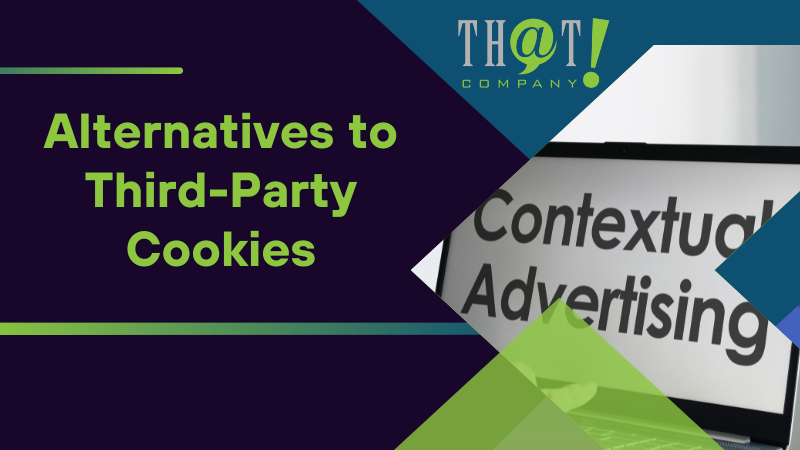
Alternatives to Third-Party Cookies
With the deprecation of third-party cookies, companies are actively seeking alternatives to maintain effective advertising strategies. Approximately 75% of marketers still depend on third-party cookies for targeted advertising, making the transition to new methods crucial. Companies are increasingly focusing on first-party customer data, contextual advertising, and identity resolution as sustainable alternatives.
The Privacy Sandbox initiative, led by Google, is also developing new technologies to replace third-party cookies. These include APIs designed to enhance privacy while still enabling effective advertising. This section will discuss first-party data, contextual advertising, and the Privacy Sandbox APIs in detail.
First-Party Data
First-party data is considered the most accurate form of data for brands transitioning away from third-party cookies. By leveraging customer interactions directly on their platforms, companies can gather actionable insights and create personalized experiences without third-party service providers, utilizing first-party cookie strategies.
Zero-party data, which is willingly provided by consumers, can further enhance the effectiveness of first-party data strategies.
Contextual Advertising
Contextual advertising targets ads based on the content of the current webpage, making it more relevant to the viewer. This approach eliminates the need for cross-site tracking and enhances user privacy. By utilizing real-time data to capture consumer interests, contextual advertising offers a viable alternative to third-party cookies for delivering targeted ads.
Privacy Sandbox APIs
The Privacy Sandbox initiative introduces APIs to replace third-party cookies, allowing for interest-based targeting without compromising user privacy. The Topics API, for example, categorizes user interests for ad targeting without tracking behavior across multiple sites.
Other APIs, like the Attribution Reporting API and the Shared Storage API, enable advertisers to assess ad effectiveness and show relevant ads while maintaining user privacy.

Tools and Techniques for Managing Cookies
Managing cookies effectively is crucial in this new landscape. Establishing a durable first-party data strategy is one of the key approaches to circumvent the challenges posed by the deprecation of third-party cookies. Auditing existing first-party data quality ensures effective utilization and helps maintain accurate targeting.
Server-side setups for site data collection provide better control over data and can be combined with hybrid-server solutions for optimal results. CMPs and browser settings are essential tools for managing user consent and preferences, ensuring compliance with privacy regulations.
Regularly clearing cookies and cache helps enhance privacy and browser performance.
Consent Management Platforms (CMPs)
CMPs play a vital role in managing user consent and ensuring compliance with privacy regulations like GDPR and CCPA. These platforms help website owners obtain consent before loading third-party scripts and storing cookies, ensuring transparency and control for users.
Technologies like CookieYes can automatically block third-party cookies until user consent is given, simplifying compliance management.
Browser Settings and Extensions
Users can enhance their privacy by controlling user preferences for cookie settings through browser settings and extensions. In Google Chrome, for example, users can block third-party cookies through the settings menu. Firefox and Safari also offer built-in blockers for third-party cookies, while Microsoft Edge provides a strict option for blocking them, including blocking third-party cookies.
Managing cookies through browser settings may affect website functionality but offers greater privacy control.
Clearing Cookies and Cache
Regularly clearing cookies and cache can enhance privacy and browser performance. Users can configure their browsers to automatically clear cookies upon closing or set preferences to clear cookies after each session.
This practice helps maintain a cleaner user’s browsing history and reduces the risk of unwanted tracking.
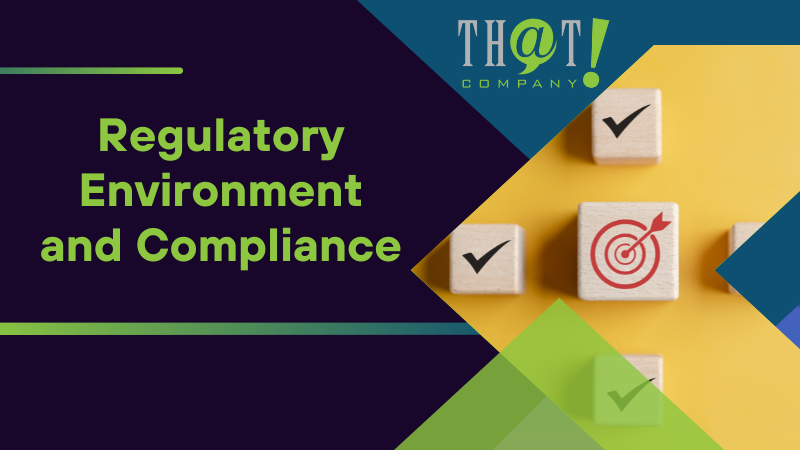
Regulatory Environment and Compliance
Privacy regulations such as GDPR and CCPA play a crucial role in shaping the management of third-party cookies and digital advertising practices. These regulations mandate explicit user consent for tracking and classifying cookies as personal data, ensuring user privacy protection. Compliance with these regulations is crucial for maintaining trust and transparency in the digital ecosystem.
Future privacy laws are expected to enhance consent mechanisms and impose stricter guidelines on cookie usage. Website owners must remain vigilant about privacy compliance and maintain transparency to build user trust. These regulations aim to strengthen user confidence in online interactions and privacy management.
GDPR and CCPA
The European General Data Protection Regulation (GDPR) and the California Consumer Privacy Act (CCPA) are key privacy regulations that require explicit user consent for tracking activities. These laws classify cookies with identifiers as personal data, necessitating user consent to collect user data and collect personal data for their use.
Under GDPR, if a user denies consent for third-party cookies, websites must block these cookies and cannot load their scripts. Compliance with these regulations is crucial for avoiding penalties and ensuring user trust.
Future Regulations
Future privacy regulations are likely to further enhance user consent mechanisms and impose stricter guidelines on cookie usage. These regulations aim to improve online privacy standards and influence advertising strategies. Website owners should stay updated on privacy compliance to maintain transparency and build user trust.
Overall, these potential regulations will strengthen user confidence in online interactions and privacy management.

How Partnering with a Professional White Label Provider Can Help
Partnering with a professional white-label provider can be incredibly beneficial for navigating the complex landscape of digital advertising and privacy regulations. With expertise in white label PPC services, That! Company, known as “The Google Ads Agency That Other Google Ads Agencies Use,” offers unparalleled support and specialization. Agencies gain access to a team of PPC specialists who professionally manage campaigns, including detailed keyword analysis, bid management, and continual evaluation of campaign effectiveness to ensure advertising efforts are optimized for success.
Additionally, That! Company’s white label PPC services include personalized client support, with a dedicated account manager available for client meetings and regular updates. Their advanced tools, like ConversionTrax, enable precise tracking of conversions across devices, helping agencies expand their service offerings while building trust with clients.
By partnering with a white-label PPC provider like That! Company, agencies can enhance their capabilities, offer superior services to clients, and improve client retention, all while maintaining their brand identity.
Insider’s Approach
Insider focuses on cookieless personalization, using product and context-based data to deliver tailored customer experiences without relying on cookies. By leveraging zero and first-party data collection methods, Insider helps brands create unified customer profiles and deliver highly personalized experiences.
This approach enhances user engagement, ensures compliance with privacy regulations, and offers a valuable strategy in the evolving digital landscape.
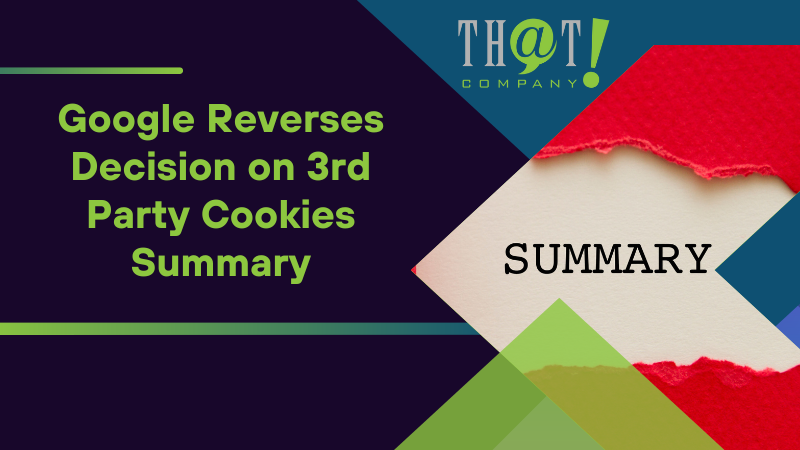
Summary
In summary, Google’s reversal of third-party cookies marks a significant shift in the digital advertising landscape. While the initial plan to phase out these cookies has been reversed, the new opt-in system and the Privacy Sandbox initiative aim to balance user privacy with the needs of the advertising industry. This decision has profound implications for online privacy and advertising, necessitating new strategies and tools for managing cookies.
Marketers must pivot towards solutions like leveraging first-party data, contextual advertising, and the Privacy Sandbox APIs to continue delivering personalized experiences while adhering to evolving privacy regulations. These changes require not just technical adjustments but also a strategic approach to ensure compliance and effectiveness in campaigns.
Partnering with professional service providers, such as a white label digital marketing services provider like That! Company, can offer invaluable expertise during this transition. Their comprehensive white-label solutions include advanced tools, strategic consultation, and seamless implementation support, helping agencies and businesses adapt effectively. From PPC management to SEO, social media, and more, their services empower agencies to scale operations, maintain brand identity, and deliver exceptional client results without the overhead of in-house development.
Additionally, That! Company offers transparent white label pricing structures, allowing agencies to accurately predict costs and maintain competitive margins. By understanding these pricing models, businesses can align their budgets with growth objectives, ensuring they maximize value and profitability.
As we navigate this evolving landscape, having the right partner with tailored white label pricing and expertise can make all the difference in turning challenges into opportunities, ensuring long-term success in a privacy-centric digital world.

Frequently Asked Questions
What is the main goal of Google’s new approach to third-party cookies?
The main goal of Google’s new approach to third-party cookies is to empower users with informed choices regarding their data sharing, thereby enhancing their control over web browsing privacy.
How does the Privacy Sandbox initiative aim to address privacy concerns?
The Privacy Sandbox initiative addresses privacy concerns by introducing APIs such as the Attribution Reporting API and the Topics API, which allow for the understanding of user interests while eliminating the need for cross-site tracking. This approach enhances user privacy while still enabling relevant advertising.
What are some alternatives to third-party cookies for targeted advertising?
Effective alternatives to third-party cookies for targeted advertising are first-party data, contextual advertising, and the Privacy Sandbox APIs, all of which prioritize user privacy while maintaining advertising efficacy.
How can users manage their cookie preferences in browsers?
Users can effectively manage their cookie preferences by accessing the settings in their web browser to block third-party cookies or employing extensions designed for this purpose. This ensures enhanced privacy while browsing.
What role do Consent Management Platforms (CMPs) play in cookie management?
Consent Management Platforms (CMPs) are essential for managing user consent and ensuring compliance with privacy regulations, thereby providing transparency and control over cookie usage. They facilitate a user-centric approach to cookie management, ensuring that individuals can make informed choices regarding their data.



























 Talk With Us
Talk With Us  Give Some Love
Give Some Love 


